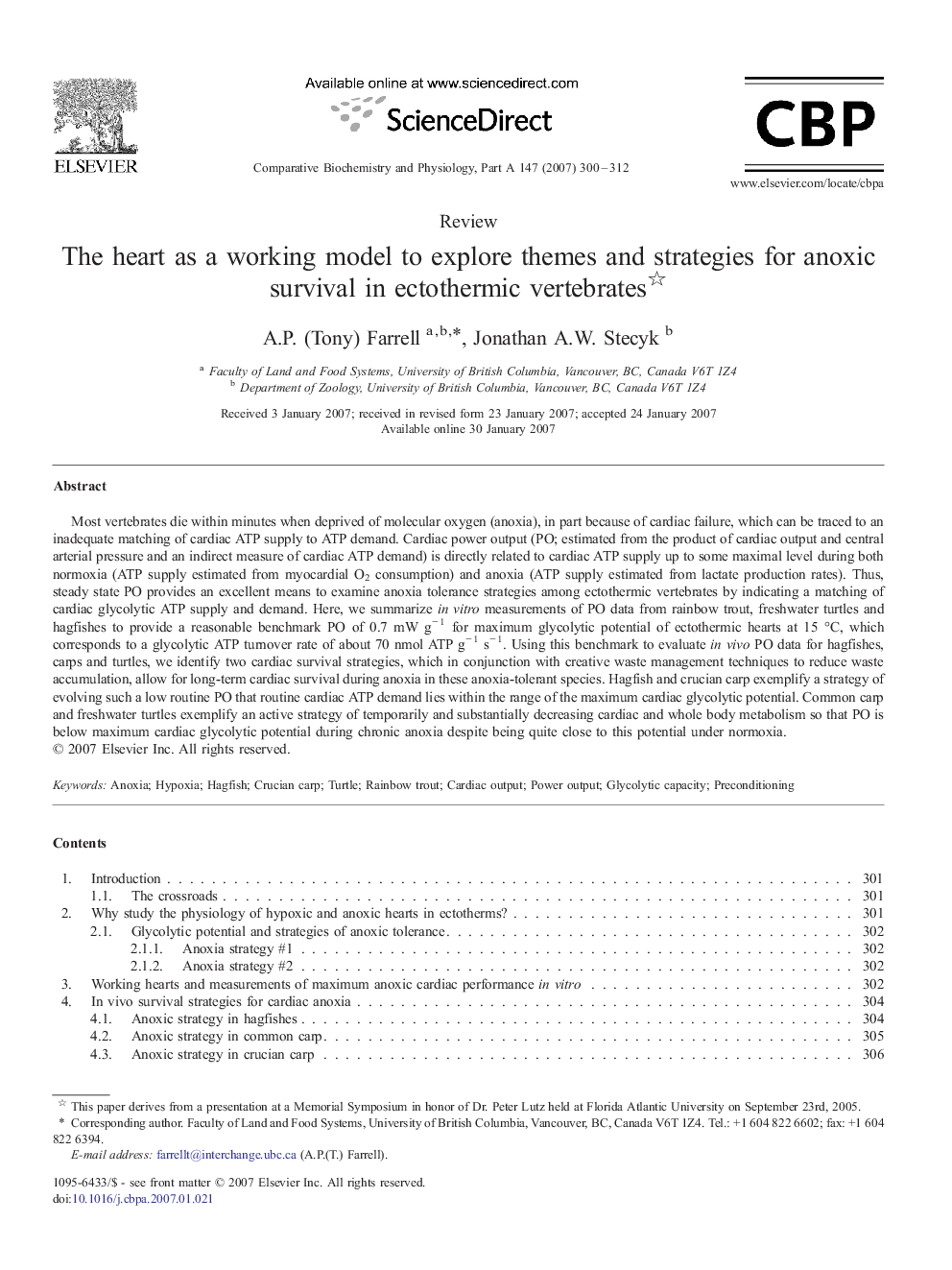| Article ID | Journal | Published Year | Pages | File Type |
|---|---|---|---|---|
| 1974250 | Comparative Biochemistry and Physiology Part A: Molecular & Integrative Physiology | 2007 | 13 Pages |
Abstract
Most vertebrates die within minutes when deprived of molecular oxygen (anoxia), in part because of cardiac failure, which can be traced to an inadequate matching of cardiac ATP supply to ATP demand. Cardiac power output (PO; estimated from the product of cardiac output and central arterial pressure and an indirect measure of cardiac ATP demand) is directly related to cardiac ATP supply up to some maximal level during both normoxia (ATP supply estimated from myocardial O2 consumption) and anoxia (ATP supply estimated from lactate production rates). Thus, steady state PO provides an excellent means to examine anoxia tolerance strategies among ectothermic vertebrates by indicating a matching of cardiac glycolytic ATP supply and demand. Here, we summarize in vitro measurements of PO data from rainbow trout, freshwater turtles and hagfishes to provide a reasonable benchmark PO of 0.7 mW gâ 1 for maximum glycolytic potential of ectothermic hearts at 15 °C, which corresponds to a glycolytic ATP turnover rate of about 70 nmol ATP gâ 1 sâ 1. Using this benchmark to evaluate in vivo PO data for hagfishes, carps and turtles, we identify two cardiac survival strategies, which in conjunction with creative waste management techniques to reduce waste accumulation, allow for long-term cardiac survival during anoxia in these anoxia-tolerant species. Hagfish and crucian carp exemplify a strategy of evolving such a low routine PO that routine cardiac ATP demand lies within the range of the maximum cardiac glycolytic potential. Common carp and freshwater turtles exemplify an active strategy of temporarily and substantially decreasing cardiac and whole body metabolism so that PO is below maximum cardiac glycolytic potential during chronic anoxia despite being quite close to this potential under normoxia.
Keywords
Related Topics
Life Sciences
Biochemistry, Genetics and Molecular Biology
Biochemistry
Authors
A.P. (Tony) Farrell, Jonathan A.W. Stecyk,
